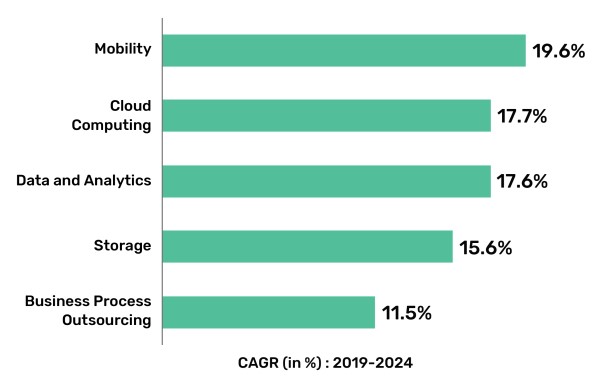What changes and challenges in law are we facing in 2024?

As 2024 unfolds, businesses navigate pivotal legal changes. From the implementation of a new minimum tax regulation to mandatory e-invoicing and environmental measures such as CBAM, this concise overview provides insights into the evolving legal landscape shaping the current year.
The beginning of a calendar year is a time to reflect and plan the future for everyone, including entrepreneurs and business leaders. It is essential not only to review the past year’s achievements and assess whether the set goals were achieved but also to look ahead in time. However, setting goals and strategies for the future must consider the evolving legal landscape, which significantly impacts business operations. Understanding upcoming changes in the law is crucial for businesses to ensure their safe and stable development. That is because we expect a plethora of changes in 2024, including some that are worth preparing for today to neutralise their impact on our business as much as possible.
Minimum tax
On 1 January 2024, the new minimum tax law came into force, initially introduced by the “New Deal” but delayed for two years. This tax applies to companies subject to CIT (including joint-stock companies, limited liability companies and certain types of partnerships), especially those reporting a tax loss or not exceeding the profitability threshold of 2%.
This regulation, intended to limit income transfer to low-tax countries, provides for several exceptions, such as excluding its application to new enterprises in the first two years of operation and companies whose revenue has significantly declined. The minimum tax regulation shall also not apply to small CIT taxpayers with annual gross sales revenue below EUR 2 million. However, if the company does not qualify for the exemption, it shall be obliged to pay the tax. The very method of its calculation may not be easy for taxpayers, for example, because of the need to correctly apply the appropriate rate.
In addition to the tax at a national level, some companies may also be subject to a global minimum tax in 2024, in line with a new EU directive (Council Directive (EU) 2022/2523). This directive, known as Pillar II, aims to cover international and domestic capital groups with a global annual turnover of a minimum of EUR 750 million.
CBAM
CBAM (Carbon Border Adjustment Mechanism) is a tool for adjusting border prices considering CO2 emissions. It involves new obligations and costs for importing certain high-emission products from third countries into the European Union. The mechanism entered into force on 1 October 2023, but 2024 will be a year full of challenges related to its introduction. Initially, CBAM will only apply to imports of cement, iron and steel, aluminium, fertilisers, electricity and hydrogen.
Importers shall report the imported volumes and the greenhouse gas emissions associated with their production.
Although entrepreneurs will not have to pay emissions fees in this phase, companies must compile data on the carbon footprint of imported goods for the last quarter of 2023 and submit a report via the electronic platform by 31 January 2024. Full implementation is scheduled for 1 January 2026. Failure to comply with these regulations may result in sanctions, including financial ones.
Entrepreneurs’ law – no more stamps
In 2024, a missing stamp on a letter or application, an unattached computer printout of an entry in the National Court Registry or a certificate of entry in the Central Registration and Information on Economic Activity is not considered a formal deficiency or a reason to recognise the letter or application incomplete. That means no more stamps and printing documents to which everyone has electronic access.
Unfair competition
The definition of entrepreneur has been extended to natural persons, corporate entities and organisational units without legal personality participating in economic activities, including business users per Regulation (EU) 2019/1150 of the European Parliament and of the Council. The definition of unfair competition has also been extended to include activities in the field of online intermediation services and online search engines, in particular violations of the terms of use of services, suspension and termination of the provision of services and the internal complaint handling system.
Whistleblowers
In 2024, regulations regarding the so-called whistleblowers should be expected to come into force. Poland should have implemented Directive (EU) 2019/1937 of the European Parliament and of the Council of 23 October 2019 on the protection of persons reporting breaches of Union law as early as 2021. However, that did not happen. Many companies have already elaborated appropriate regulations, but in 2024, the topic will undoubtedly return.
E-delivery
The continuing transition of court and administrative proceedings into electronic formats will introduce in 2024 the obligation for entities entered in the National Court Registry before 10 December 2023 to use electronic e-delivery of documents through the National Electronic Service System from 10 March 2024. E-delivery will be a digital form of communication between public entities, citizens and companies intended to improve the flow of information and guarantee data security. E-delivery shall mean not only the obligation to set up the required mailbox but also to adapt internal procedures related to the circulation of correspondence in companies. From the date the obligation becomes effective for a given group, correspondence will be served via the public electronic registered delivery service.
Summary
The discussed regulations present both challenges and facilitations for entrepreneurs in 2024. Many fascinating solutions may appear with the appointment of a new government following the coalition agreement. Item 12 thereof, which states the restoration of favourable conditions for the development of businesses, is of particular interest. A meaningful change will concern, among others, introducing the principle that the employee’s sick pay shall be paid by the National Insurance Institution (ZUS) from the first day.
However, there is no shadow of a doubt that 2024 will bring many changes in law to which companies will have to respond quickly and which are worth preparing as soon as possible.
Authors:
Noemi Chudzik, LL.M. Partner, Attorney-at-law, CHUDZIK i WSPÓLNICY Law and Taxes
Mateusz Chudzik, Partner, Attorney-at-law, CHUDZIK i WSPÓLNICY Law and Taxes
This article comes from magazine:
FOCUS ON Business #14 January-February (1/2024)
 Check the issue
Check the issue








